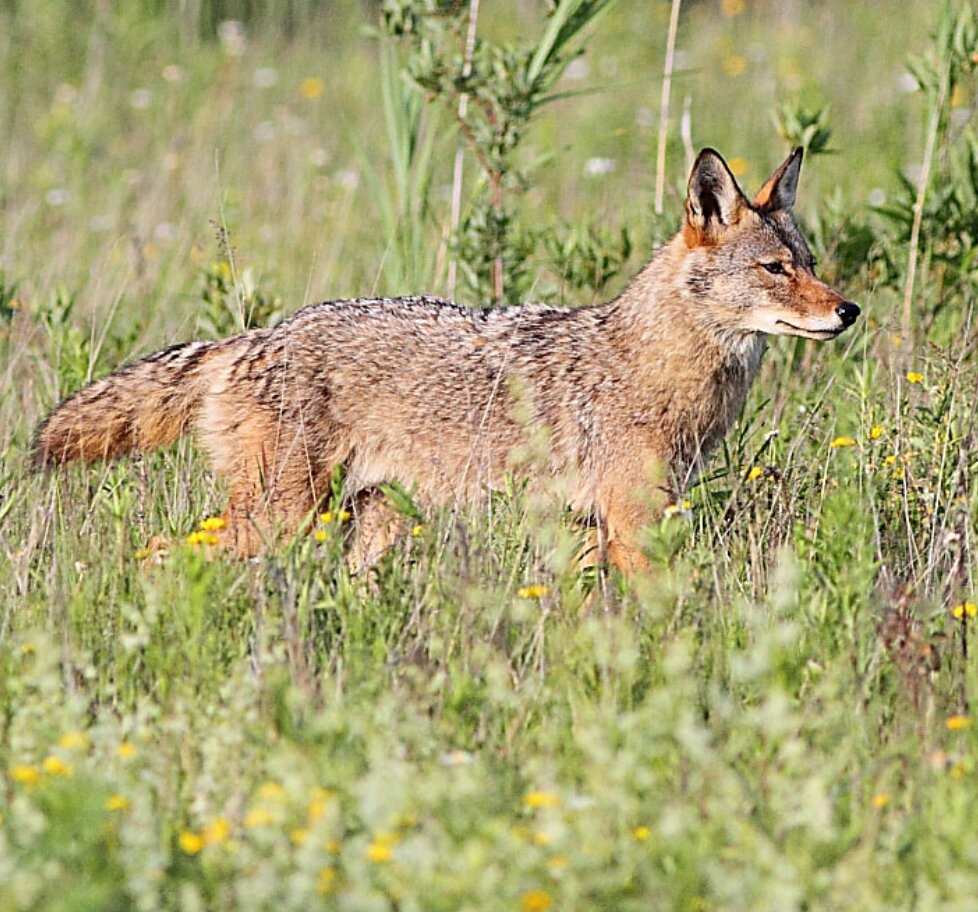It's National Wildlife Week -- Leave Wildlife Alone
It’s nearly the end of National Wildlife Week already (6 - 10 April 2020), but whether we are honoring wildlife through a nationally-recognized celebratory week or not, wildlife are always my people. While this week shines a spotlight on how important it is to protect and conserve wildlife habitats not only for their survival but for ours, as well, we cannot focus on conservation for only one week out of the year. We must always do what we can to be good stewards of the land, and much of the time that means leaving it the heck alone.
Often, people encourage others to protect and conserve wildlife’s natural habitats not only for the sake of wildlife but for us to have beautiful places to enjoy. Perhaps these folks worry that we humans won’t be motivated to be good stewards of the land if there is “nothing in it for us.” But the fact is that we should protect and conserve widlife’s natural habitats for them to have places to thrive, full-stop. Not everything is about us. There should be places on Earth that we never touch. Where we never roam. Where we do not go to enjoy the beauty found therein, but where instead wildlife can be left to live without ever having to encounter one of us humans.
Many years ago, someone wrote a letter to a columnist of the local newspaper asking for help. The letter writer wrote, “I live in the Oakland Hills, and the deer are eating all my azaleas. What can I do to get them to stop?” The columnist responded, “Move.” I was too young to be reading the newspaper then, but my mother guffawed when she read this exchange and relayed the story to me. I have never forgotten this story because it illustrates so well how simple our relationship can and ought to be with wildlife. We should either be helpful to our wildlife neighbors — glad to be able to provide them with some beautiful flowers to eat, for example — or leave them entirely alone. Plotting to get them to stop eating our flowers puts us in an adverserial position with them, and let’s face it: wherever we find ourselves living today, wildlife were here first. In truth, we are living on their land. We need to check ourselves and our sense of entitlement.
Chiggity check yourself before your wreck yourself, cuz being a bad wildlife neighbor is bad for your health!
Wait. How is being a bad wildlife neighbor bad for your health? Well, science has revealed that in order for this Earth to survive, we must maintain fifty percent (50%) of it in its natural state. That does not mean developing humongous homes with swimming pools and landscaped yards on it and then saying, “But look: we’ve planted native trees in our yard!” There must be no human construction whatsoever in these areas. They must remain in their natural states. Otherwise, the Earth’s temperature will rise to a dangerous level and all of the planet’s fragile ecosystems will break down, as they have already started to do. Fires raging Australia? More severe fires in California in the past three years than in all of the state’s previous one hundred and sixty-five years? Antarctica having its first heat wave ever recorded? The destruction caused by humans has already been taking its toll on the natural world, and when the natural world ceases to exist, so do we.
When people complain that they are seeing rattlesnakes in their garages or scorpions on their driveways, I remind them that those rattlesnakes’ and scorpions’ ancestors lived there before any humans decided to mass produce houses in the area. I imagine if we could understand wildlife’s many languages, we would find that wildlife worry much more about us trampling all over their land than we could ever complain about them being on “our” land.
What was that, Ice Cube? Oh, you wanted to remaind folks again about the wildlife remix of your hit song, “Check Yo Self”? Right you are.
Chiggity check yo self before your wriggity wreck yo self, cuz being a bad wildlife neighbor is bad for your health!
